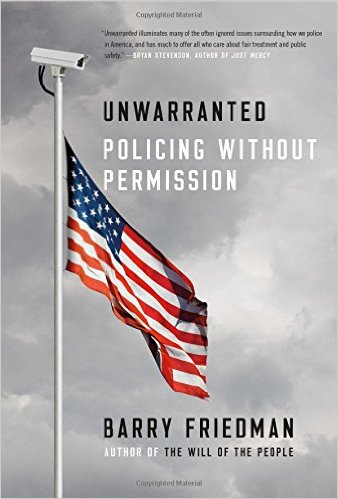Book Aims to Roll Back Surveillance and Force Via More Democracy
Matt Welch reviews Barry Friedman's Unwarranted: Policing Without Permission in the Wall Street Journal

In today's Wall Street Journal, under the headline "Our Criminal Injustice System," I review Barry Friedman's Unwarranted: Policing Without Permission. Excerpt:
Mr. Friedman, a New York University professor who specializes in constitutional law and policing, is one of the country's most interesting cartographers of the nexus between criminal justice and the citizenry. His previous book, "The Will of the People" (2009), made the provocative and persuasive argument that the Supreme Court rarely gets too far ahead of—or behind—public opinion.
"Unwarranted" posits that the central problem with the status quo is "policing without permission." It's the cellphone stingray towers that gobble up user data on behalf of local police departments. It's the tens of thousands of violent SWAT raids carried out each year to execute drug warrants. It's the unconscionable civil-asset forfeiture rules that allow cops to take money and property from people who haven't even been accused of a crime. All of this is aided by Supreme Court jurisprudence that has turned the Fourth Amendment's strictures on search and seizure into swiss cheese.
The fundamental issue, according to the author, is that Americans lack the tools to comprehend the scope of what's gone wrong. "We don't even think about all these various practices, troubling as they are, as a single phenomenon," Mr. Friedman writes. "It is a complete failure of democratic governance."
It's a very useful and damning book, one that makes the hopeful argument that further democratizing policing rules will lead to better, not worse, constitutional outcomes.


Show Comments (8)